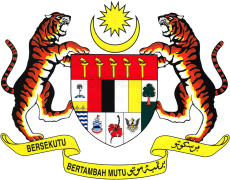The Government should focus on helping the poorer section of society, the workers and employees, and not businessmen with vested interests who continuously demand political protection.
I ATTENDED the Trans-Pacific Partnership Agreement (TPPA) Open Day organised by the International Trade and Industries Ministry on Aug 1.
The event started with Miti providing an update of the negotiations, followed by a panel discussion and then a breakout session.
A few days before the open day, I was actually invited to chair the main panel discussion.
Unfortunately, one of the panel speakers asked Miti to find someone else. I guess I am not acceptable enough because I disagree with protectionism, especially one based on ethnicity. But in the current political environment, I can understand the situation and I was happy to step aside.
During the breakout session, I joined the group discussing government procurement, bumiputra rights, competition and state-owned enterprises. This was by far the most popular group and there were more people than chairs.
Many of the delegates who spoke in the group claim to represent Malay or bumiputra businesses. Their message was almost unanimous.
They believe that if the TPPA was signed, their businesses would be affected, and therefore they wanted assurance that the Government will protect their interests.
I was amused to see these “entrepreneurs” declaring that in order to stay in business, they need continuous political support. I have always thought that an entrepreneur is supposed to be enterprising. But clearly for some it means politicking.
To be fair, certainly some of those who stood up to voice their concerns were sincere. But I do feel that we miss the point by debating about how to use government powers to protect the interest of the business class. Surely the real issue is how to protect the interest of the rakyat.
The TPPA is a free trade agreement that is being negotiated by 12 countries – Australia, Brunei, Canada, Chile, Malaysia, Mexico, New Zealand, Peru, Japan, Singapore, the United States and Vietnam.
If all 12 countries sign the agreement, a market of 800 million people with a combined GDP of US$27.5 trillion (RM89.4 trillion) will be opened to us.
It also works the other way round. Once the TPPA is signed, 800 million people, complete with the businesses that some of them own, will be able to offer their products and services to all Malaysians.
Will Malaysian businesses be affected if the TPPA is signed? Yes, of course some will be.
Those who are truly enterprising will immediately have access to new markets. They will be able to generate revenues and create jobs like never before. But businesses who offer low quality products will find that consumers can buy better ones produced by others, including from abroad.
Greedy business owners will discover that they can no longer overcharge customers because the rakyat have cheaper options.
And those who monopolise certain sectors will discover that they have to compete and prove their worth.
Ultimately, we the common people will benefit from the increased choice and competition. We can get higher quality products at cheaper price and we will have many options instead of just a few.
Frankly, if uncompetitive businesses cannot supply good quality products at a price that common Malaysians can afford, then why should the Government protect them? Instead of continuously allowing them to squeeze our hard-earned money, I say let them go bust. And we will then see true entrepreneurs prosper by continuously looking for cheaper ways to better serve us.
This is what Joseph Schumpeter meant when he coined the term “creative destruction” in his 1942 book Capitalism, Socialism and Democracy. Schumpeter explains that economic growth will unavoidably create job losses and remove uncompetitive businesses. That period of “creative destruction” is necessary to enable the most beneficial enterprises to succeed while weeding out uncompetitive ones.
Over time, creative destruction will benefit the rakyatbecause we will have more products and services that are cheaper and better, new and better paying jobs, as well as higher living standards for everyone.
We can expect those with vested interests will resist creative destruction because all they care about is their own businesses and they wouldn’t want their wallets to be affected. They resist by lobbying for political protection. The only interest they are protecting is their own, even though some cleverly abuse jargons like “national interest” or “helping the Malays”.
The Government should instead focus on helping the poorer section of society, the workers and employees, and not businessmen with vested interests who continuously demand political protection. The best way to do so is by opening up our economy for fiercer and more robust competition, despite loud protests from the politically connected.
But I am not saying everything about the TPPA is fine and dandy. The public engagement initiative was conducted way too late and the way the Government handled queries left a lot to be desired. And I personally would prefer unilateral liberalisation without a need for a trade pact.
Nevertheless, weaknesses in the Government’s handling of the matter must not be taken to mean that opening up our economy is bad. These are two very different things.
Ultimately an open, transparent and accessible market is much better than one that benefits only the politically connected. A market that is freer is also one that is most beneficial for common people like you and me.
> Wan Saiful Wan Jan is chief executive of the Institute for Democracy and Economic Affairs (www.ideas.org.my)
Source: www.thestar.com.my
Last Updated 2015-07-21 16:48:23 by vox vox
 |
| 











